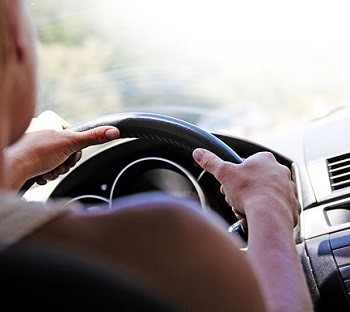Theresa May is encouraging the public to shame friends and family practicing this distracted driving.
According to British Prime Minister Theresa May, drivers taking part in mobile phone use should be shamed by family and friends. She equated the danger of smartphone use behind the wheel to drunk driving. Her goal is to make the practice socially unacceptable in order to make roads safer.
Prime Minister May’s comments are not without support from scientific study from many countries.
Many governments have been watching growing lists of statistics being added to other evidence about mobile phone use by drivers. In many regions of the world, using a smartphone – whether talking, texting or for some other purpose – causes distraction that is the same or more dangerous than driving drunk.
 PM May called for people to make this practice socially unacceptable in order to save lives on U.K. roads. She wants people to shame their friends and family who would use their mobile devices while they drive.
PM May called for people to make this practice socially unacceptable in order to save lives on U.K. roads. She wants people to shame their friends and family who would use their mobile devices while they drive.
This represents the first time her government has addressed mobile phone use distracting drivers.
The statement arrived at a time when the number of crashes – some of which included fatalities – are rising in the country due to distracted drivers using mobile phones. She addressed drivers of cars, trucks and every other type of vehicle. She also stated that there is an upcoming review that will be looking to stiffen the penalties for dangerous driving if appropriate.
The May government also revealed more details with regards to its own intentions for boosting distracted driving penalties. They are aiming to set an immediate six point penalty to anyone caught using a mobile phone while operating a car or other vehicle. Moreover, this penalty will not allow for exceptions or exemptions. Therefore, first-time offenders and young drivers will not be let off the hook.
When May spoke of mobile phone use by drivers behind the wheel, she said that public awareness of the dangers are key. “Just as we have made it socially unacceptable to drink and drive, so we need to do the same with using a mobile phone while driving.”
Recent research has revealed that the use of a hands-free device doesn’t make smartphone use safer behind the wheel.
The results of a new research study out of the U.K. have revealed that distracted driving is just as much of a problem among people who are behind the wheel with a hands-free device as it is when they’re holding a handset.
The study was conducted by the University of Sussex and involved the participation of 60 drivers.
The drivers were asked to take part in a series of different phone conversations. Sometimes there were very simple questions asked to the drivers during those discussions, such as “Where did you leave the blue file?”. What the research showed was that at times when the drivers were asked questions such as that one, the focus of the brain would shift onto an area of the road that was four times smaller than it had previously been. When the driver was thinking about the answer to the question, the outcome was a measurably slower reaction time. In fact, the distracted driving statistic changed by nearly a full second longer than their normal driving skills.
This mean that distracted driving isn’t necessarily based on the nature of the device as much as the talking itself.
 The drivers who were paying attention to a mobile phone conversation – regardless of the mobile device – had a reaction time that was slower by nearly a second. According to Dr. Hole, the study’s lead author, “Our study adds to a mounting body of research showing that both hand-held and hands-free phones are dangerously distracting for drivers.” He added that “The only ‘safe’ phone in a car is one that’s switched off.”
The drivers who were paying attention to a mobile phone conversation – regardless of the mobile device – had a reaction time that was slower by nearly a second. According to Dr. Hole, the study’s lead author, “Our study adds to a mounting body of research showing that both hand-held and hands-free phones are dangerously distracting for drivers.” He added that “The only ‘safe’ phone in a car is one that’s switched off.”
Currently, the law in many areas that do not allow handsets to be used while behind the wheel are suggesting that by opting for hands-free devices, the driver has made the safer choice. However, according to Dr. Hole, that is hardly the case.
Equally, the study’s author admits that this issue of distracted driving regardless of the type of mobile device actually used becomes quite a struggle in terms of enforceability. “It’s very difficult for the police to tell if someone’s using a hands free phone,” he explained. However, he believes that the laws should be altered in order to make sure drivers understand that they’re not necessarily being safe by using any mobile devices while behind the wheel, regardless of whether or not they’re holding them in their hands.
 PM May called for people to make this practice socially unacceptable in order to save lives on U.K. roads. She wants people to shame their friends and family who would use their mobile devices while they drive.
PM May called for people to make this practice socially unacceptable in order to save lives on U.K. roads. She wants people to shame their friends and family who would use their mobile devices while they drive.
 The drivers who were paying attention to a
The drivers who were paying attention to a 